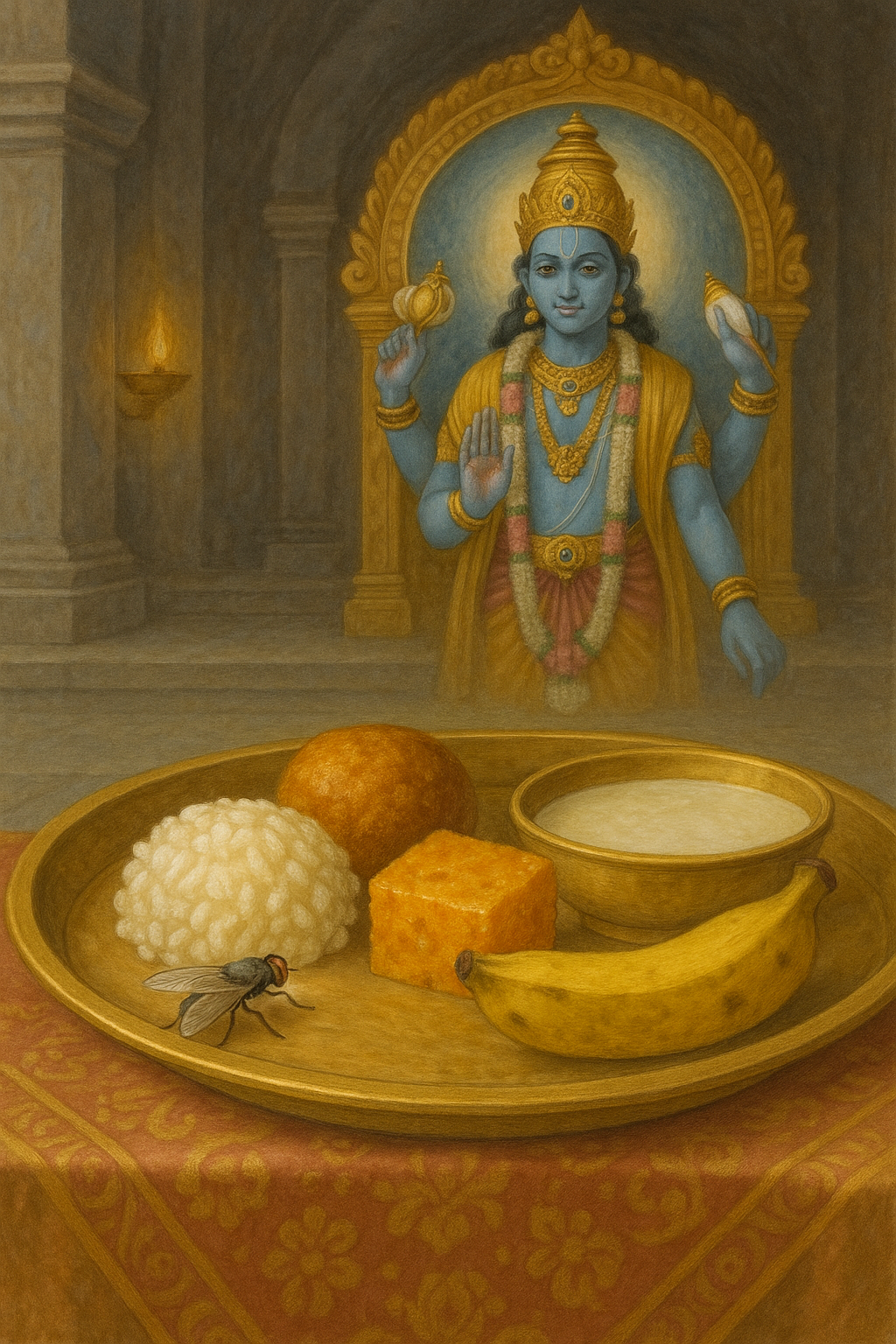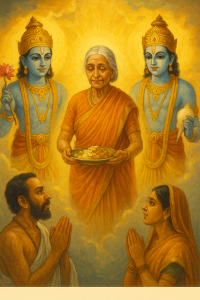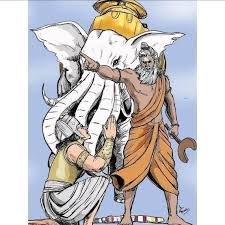In a revered temple of Lord Viṣṇu, daily worship was carried out with meticulous care. The brāhmaṇa priests would wake early, bathe in the river, collect fresh flowers, and prepare delicious offerings of food, all with loving devotion. Every day, the Lord received naivedya—plates of rice, sweets, fruits, and milk delicacies—carefully placed before the deity.
One day, as the offering was being made, a tiny fly buzzed into the sanctum. Attracted by the sweet scent of the food, the fly landed for a moment on the edge of the offering. It tasted a tiny drop and quickly flew away. No one noticed.
But the Lord noticed.
Later that same day, while flying near the edge of a flame lit for ārati, the fly was burned and died instantly.
At that very moment, to the astonishment of all watching in the subtle realm, Viṣṇudūtas appeared. They descended in their effulgent forms, their eyes full of compassion, and addressed the soul of the fly:
“This soul, though born in the form of an insect, touched the food that had been offered to the Supreme Lord. Even one atom of such prasāda is spiritually potent, capable of delivering the most fallen. By this contact, the soul has been purified.”
The soul of the fly, glowing with divine brilliance, was escorted to Vaikuṇṭha, free from all karmic bondage, now qualified to serve the Lord eternally.
The brāhmaṇas, unaware of the liberation that had just taken place, continued their worship, never realizing that even a momentary touch of prasāda had uplifted a living being beyond the cycle of birth and death.
Lessons from This Story:
- Viṣṇu-prasāda, once offered, is no longer material—it is divine and fully spiritual.
- Even a fly, tasting a drop of offered food, can attain mokṣa.
- The Lord accepts all beings, regardless of form, who come into contact with His mercy—even if they don’t know it.
- As stated in Padma Purāṇa:“prasāda-sevayā muktiḥ” – “One who honors the Lord’s prasāda, even unknowingly, can achieve liberation.”



